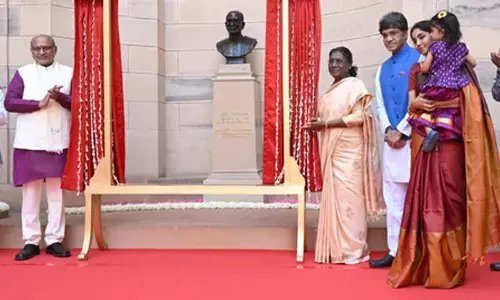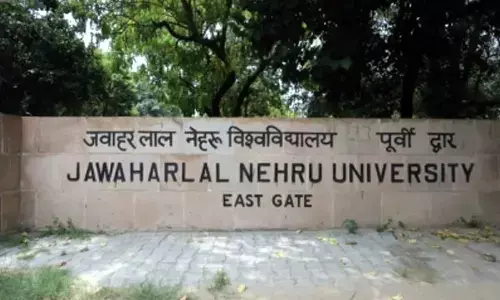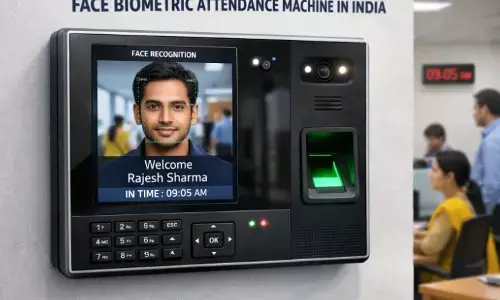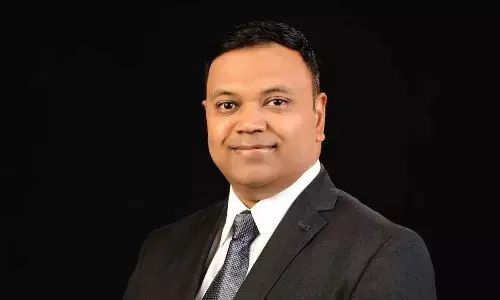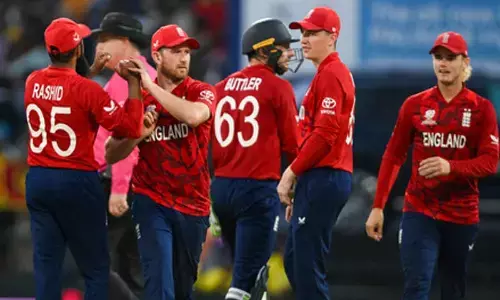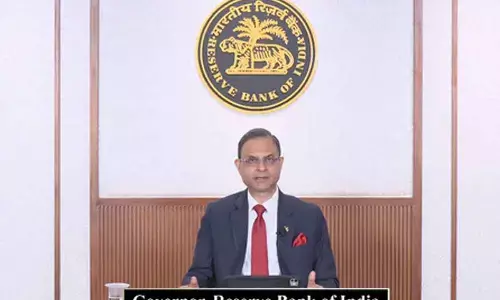Political climate heating up all over
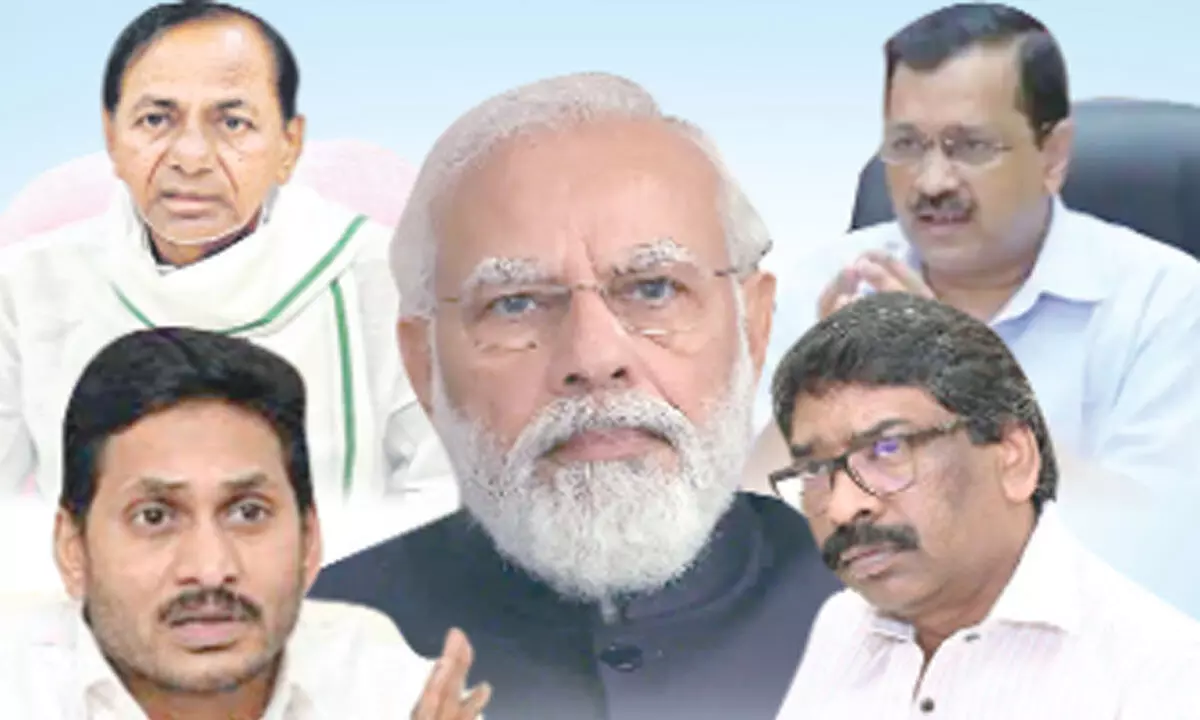
Political climate heating up all over
Why was the third Prime Minister of India, Indira Gandhi, known as Iron Lady? It was so because she faced many a rough weather in her political career but fought back all her adversaries who were strong within the party though they were more experienced and were considered to be stalwarts.
Why was the third Prime Minister of India, Indira Gandhi, known as Iron Lady? It was so because she faced many a rough weather in her political career but fought back all her adversaries who were strong within the party though they were more experienced and were considered to be stalwarts.
Indira Gandhi was known for taking certain tough decision like nationalising private banks across the country in 1969 through an ordinance. All the deposits of these banks were transferred to the Centre. The move proved to be significant, as the geographical coverage of banks increased, especially in the rural parts of the country with the number of branches rising from 8,200 to 62,000.
The very first nuclear bomb coded as 'Operation Smiling Buddha' was tested on May 8, 1974. Similarly, at the height of militancy in Punjab, Operation Blue Star was launched as part of the biggest internal security mission ever undertaken by Indian Army. This was aimed at removing the Sikh militants after the rise of Khalistan movement as they were accumulating weapons in Harmandir Sahib Complex (Golden Temple). The Khalistan movement was a political Sikh nationalist movement which aimed at creating an independent state for Sikhs inside the current North-Western Republic of India and was being led by Jarnail Singh Bhindranwale.
Indira Gandhi was known as Iron Lady because she was decisive, ruthless and authoritarian leader. One cannot dispute the fact that it was under her governance that crucial reforms were made that were instrumental in shaping the country's economy. She replied her critics by bringing about radical socialism-inspired changes in the country's economic, political, international and national policies.
But along with all this, she was known as Iron Lady also because of her authoritative attitude and strategies to silence dissidents within the party. Even during her time, charges of Congress government using various agencies like IT and ED against opponents were made. The affected parties used to cry foul and alleged that she was politically vindictive.
Even now, the allegations continue and so do the raids more so on the eve of elections. During last general elections we have seen how IT raids took place against some of the Telugu Desam Party leaders when they came out of NDA and went against BJP and got mauled.
In a latest development Jharkhand Chief Minister Hemant Soren was disqualified by Election Commission and he lost his chief ministership in the mining scam. He is said to have allotted mines to himself. Well, it must be true if EC says so. But what is important here is the timing of the action.
A little before that, on August 19 we had seen I-T conducting multiple raids connected to the Deputy Chief Minister of Delhi, Manish Sisodia, in the allege liquor scam. The raids were conducted not just in Delhi but across seven states. They named 15 persons in the FIR. The AAP government has refuted the charges. Delhi Chief Minister alleged that BJP tried and failed to implement Operation Akarsh. It wanted to poach AAP MLAs and offered Rs 20 crore to each one of them. But the AAP MLAs refused to fall prey, he contended.
This was followed by allegations that the Delhi's liquor policy was designed by the family members of Telangana Chief Minister K Chandrashekar Rao, that money changed hands and the same policy was also introduced in Punjab.
But why is all this happening? We have seen how AAP extended its popularity to Punjab and is now trying to have a footprint in Gujarat. The Congress party is weak across the country including Gujarat which is to go to polls in December. For BJP winning Gujarat elections becomes much more important as the two main leaders (the real twin engines) Prime Minister Narendra Modi and Union Home Minister Amit Shah are from Gujarat and they cannot afford to lose the electoral battle there. AAP has been trying hard to fill the political vacuum created by Congress party. It is showcasing the work it had done in the field of education in Delhi and how it was implementing the same in Punjab. Kejriwal claimed, "In the last 70 years, the quality of education and educational infrastructure had hugely declined. Government schools were reduced to nothing and private schools were operating like profit-making shops. It was a norm that your children will receive good education and study in an air-conditioned classroom if you have enough money, but if you do not have money, your children will not get quality education."
Similarly, Kejriwal is promising free power and subsidised water bills, unemployment allowance, allowance for women and free health treatment. The entire cost is Rs 2 lakh per annum per family. Over five years it comes to Rs 10 lakh," he said. He has also been telling the voters: "When they (rival parties) come to give you money, remember, if you vote for AAP you will benefit by Rs 10 lakh. What is more beneficial – a Rs 2,000 bribe or Rs 10 lakh?"
As far as Telangana is concerned, the relations between BJP-led NDA government and TRS soured. After Maharashtra, BJP started focussing more on Telangana and has certainly made considerable inroads though it cannot be said they are yet strong enough to come to power in the next elections. There are many issues to be sorted out. The first and foremost is to find 119 candidates to contest the polls. But one thing is certain and that is anti-incumbency factor does pose threat to the TRS popularity. The political situation at this point of time is fluid.
Since the iron is hot, BJP has now dragged the alleged involvement of the family members of the KCR in Delhi liquor scam. To some extent, the BJP certainly succeeded in pushing the TRS government near to the corner, if not fully. It is said that when a cat is cornered in a closed room, it retaliates violently. KCR now seems to be doing the same thing. Though there were 1OO cases against Goshamahal BJP MLA Raja Singh, it went aggressive on his recent remarks in a video which went viral and was withdrawn later in which he allegedly made objectionable remarks against Prophet Mohammed.
This came as an opportunity for TRS to utilise the reactions that came from Muslim community to dub BJP as a communal party which if voted to power would indulge in destructive politics.
KCR is now going to the people under one pretext or the other touring each district alleging that BJP is creating communal disharmony and that if people vote for them, the state would witness trouble between various communities. The Raja Singh incident has given him a chance to rake up anti-BJP sentiment and has pushed the saffron party into defence. How soon and how effectively they will make new moves to counter this campaign remains to be seen.
Another point to be noted here is that all regional parties have been trying to come on one platform to take on BJP. KCR has been meeting Hemant Soren, Arvind Kejriwal, Sharad Pawar, Udhav Thackeray, Mamata Banerjee, Punjab Chief Minister Bhagwant Mann etc.
Now let's see the developments. In Maharashtra, the Udhav government is gone. Hemant Soren has been disqualified. Raids are conducted on Delhi Deputy CM Manish Sisodia and the allegations of links with TRS have been made. All this has pushed the respective regional parties into uncomfortable situation.
There is another contrasting situation in Andhra Pradesh. After the meeting between Modi and Chandrababu Naidu in Delhi recently, the tone of state BJP has changed. They are more vocal against the YSRCP government. Add to that Union Home Minister Amit Shah's meeting with film actor Jr NTR for about 40 minutes in Hyderabad. This certainly has sent alarm bells in YSRCP.
Analysts feel that BJP is trying to wean away two major communities (Kapus and Kammas) who are strong in the coastal belt. The TDP rank and file also seems to be buoyed by the growing support for its public meetings and has given them a hope that they are back in the fighting arena.
All this is fine. But what could be the political scenario particularly in Telangana now? Well, the possibility of KCR dissolving the Assembly soon after the results of Gujarat Assembly elections are over cannot be ruled out. If the verdict goes against BJP, it would give a boost to the efforts of opposition parties to intensify their campaign against BJP. Using the BJP defeat in Gujarat, KCR may go to people and may be back in driver's seat with reduced majority. If BJP wins in Gujarat, he would still like to seek people's mandate. As of now, BJP is struggling hard to find winning horses in 119 constituencies. If they can really find 30 to 40 who have the potential to win in Telangana, it would be a great achievement. Hence, KCR would not like to give time for the saffron party to become stronger. Will YSRCP also go in for early polls? This needs to be watched. One thing is certain that the political scenario is becoming curiouser.


